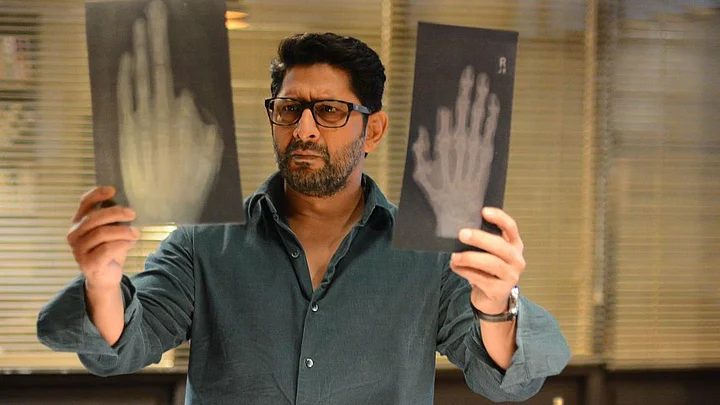“There’s a difference between a dead body and the dead. The dead can talk” - Barun Sobti aka Nikhil Nair’s words propel the plot of the psychological thriller Asur, currently streaming on Voot Select.
Directed by Oni Sen, the eight-part series unfolds in two timelines. The curtains open 11 years prior in Varanasi. A boy, Shubh Joshi, and his dad are seen returning from an initiation ceremony when tragedy strikes.
Cut to the present day. Nikhil Nair is in America teaching forensic science at the Federal Bureau of Investigation (FBI). His so-called peaceful life with his wife Naina (Anupriya Goenka) and daughter turns upside down when he starts receiving coordinates for corpses from an unknown number in India. With each murder, Nikhil’s urge to leave his hackneyed desk job grows even stronger and he finally succumbs to his ‘calling’ and flies down to India to join the Central Bureau of Investigation (CBI).
Thus begins a manic hunt for a serial killer who not only tortures his victims to death but also chops off their index fingers. To add to the drama, he commits the ‘perfect crimes’, not leaving a trace of evidence barring a Balinese mask of a devil. Nikhil immerses himself in the case, but reuniting with the CBI also forces him to confront a ghost of the past - Dhananjay Rajpoot (Arshad Warsi), a senior CBI officer in charge of the case. Once mentor and student, the two now share a strained relationship.
As the plot thickens with more corpses tumbling out from different parts of India, we encounter a dark and dangerous world that goes beyond logic. Every episode explores the conflict between science and philosophy and reason versus belief.
Also, flashbacks about Nikhil and Dhananjay’s relationship sort of answer the widening gulf. However, the complex plot does not have interesting layers. Instead, it leaves the viewers thoroughly confused.
From mythology, revenge, redemption, karma, to mystery, murder and human psychology, Asur tries to combine different aspects but gets entangled in its own web. Long monologues about tales of demons and gods, destiny and other philosophies take away the sense of urgency from the show. We are constantly reminded of season 2 of Sacred Games and the message it wanted to send across but unfortunately failed.
Secondly, when it comes to the investigation, extensive liberties have been taken. There is a blind reliance on instinct and a strange nonchalance when it comes to questioning the reason behind chopping off victims’ index fingers. Apart from Dhananjay, Nikhil, Lolark (Sharib Hashmi) and the tech expert Rasool, strangely nobody in the entire department is equipped with enough knowledge about the case. Also, we never get to know as to why the killer chooses Nikhil to take over the case. The bizarre plot twists in the last two episodes take down the series by notches.
The saving grace is a few strong performances. It’s refreshing to see Arshad Warsi in a non-comic role. Dhananjay is egoistical on one hand and empathetic on the other. He tries to look for explanations behind every move the killer takes, but is also drawn to spiritual discussions. He is not someone who plays by the rules, and Warsi essays the role with utmost honesty. However, what Dhananjay’s character needed was more layers. Sharib Hashmi is impressive as the fun and ever curious Lolark, and Vishesh Bansal as the twisted Shubh deserves praise.
But Barun Sobti is a big disappointment. Nikhil is perpetually tired and a sense of exhaustion sets in watching him chase a psychopath with the same lost expression. True, there are parts wherein he shines as someone being eaten up by a dilemma that can alter the future of many lives, but that’s just a flicker.
From childhood traumas to a botched up judicial system, the effect a religious cult can have on people and the bitter truth of human nature, Asur lays bare a world divided in the name of religion.
The premise is solid, but Gaurav Shukla’s creation fails to make the desired impact.
